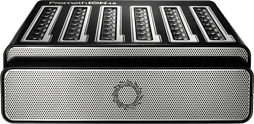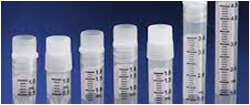Cold and ambient temperature
Biological sample storage requires careful consideration of temperature conditions to maintain the integrity and viability of the samples. The appropriate storage temperature depends on the type of biological sample and the intended use. Here are some common storage temperatures for biological samples:
-196°C Liquid Nitrogen
- Samples: Sperm, oocytes, embryos, and other highly sensitive samples.
- Purpose: Ultra-long-term storage for preserving biological materials in a highly stable state.
-80°C Freezers
- Samples: DNA, RNA, proteins, enzymes, some cell lines, and others
- Purpose: Long-term storage to preserve molecular structures and prevent degradation.

Sequencing
Targeted and non-targeted, custom de novo bionalytical asssay development, and modeling.
-20°C Freezers
- Samples: Enzymes, certain reagents, and some cell lines.
- Purpose: Short to medium-term storage to slow down degradation processes.
4°C Refrigerators
- Samples: Culture media, certain cell lines, and some stable reagents.
- Purpose: Short-term storage for maintaining sample stability without freezing.
Room Temperature (20-25°C)
- Samples: Some bacterial and fungal cultures, certain stable chemicals.
- Purpose: Short-term storage for samples that are not sensitive to temperature variations.

Get a Quote
Need a high-quality biostorage facility for your critical specimens? We got that.
